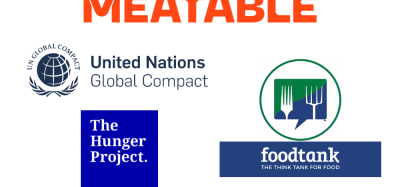Cocoa sustainability at Mars
- Like
- Digg
- Del
- Tumblr
- VKontakte
- Buffer
- Love This
- Odnoklassniki
- Meneame
- Blogger
- Amazon
- Yahoo Mail
- Gmail
- AOL
- Newsvine
- HackerNews
- Evernote
- MySpace
- Mail.ru
- Viadeo
- Line
- Comments
- Yummly
- SMS
- Viber
- Telegram
- Subscribe
- Skype
- Facebook Messenger
- Kakao
- LiveJournal
- Yammer
- Edgar
- Fintel
- Mix
- Instapaper
- Copy Link
Posted: 15 December 2010 | Peter van Grinsven, Cocoa Sustainability Field Research Manager, Mars Nederland B.V. | No comments yet
At Mars, the sustainability of the cocoa industry is part of the strategy and business practices, with the focus on the viability of smallholder cocoa production systems and the needs of cocoa communities. This fits the company’s principle of mutuality, but there is also a realisation that the future of the whole cocoa industry is under threat and that the growing needs of the industry cannot be met in the future, at the expense of both the farmer and the industry. Many issues threaten the sustainability and the livelihoods of the eight million small holder cocoa farmers worldwide that can only be addressed through large programs in which industry collaborates with governments of producing and consuming countries and with national and international institutes, as well as with NGO’s and the cocoa farmers.
At Mars, the sustainability of the cocoa industry is part of the strategy and business practices, with the focus on the viability of smallholder cocoa production systems and the needs of cocoa communities. This fits the company’s principle of mutuality, but there is also a realisation that the future of the whole cocoa industry is under threat and that the growing needs of the industry cannot be met in the future, at the expense of both the farmer and the industry. Many issues threaten the sustainability and the livelihoods of the eight million small holder cocoa farmers worldwide that can only be addressed through large programs in which industry collaborates with governments of producing and consuming countries and with national and international institutes, as well as with NGO’s and the cocoa farmers.
At Mars, the sustainability of the cocoa industry is part of the strategy and business practices, with the focus on the viability of smallholder cocoa production systems and the needs of cocoa communities. This fits the company’s principle of mutuality, but there is also a realisation that the future of the whole cocoa industry is under threat and that the growing needs of the industry cannot be met in the future, at the expense of both the farmer and the industry. Many issues threaten the sustainability and the livelihoods of the eight million small holder cocoa farmers worldwide that can only be addressed through large programs in which industry collaborates with governments of producing and consuming countries and with national and international institutes, as well as with NGO’s and the cocoa farmers.
Mars uses the definition of sustainability as stated in the Brundtland Report, World Commission on Environment and Development: “Meeting the needs of the present without compromising the ability of future generations to meet their own needs.”
To Mars, sustainable cocoa farming means that cocoa is grown productively and profitably alongside alternative cash and food crops, on farms that are viable over the long term and that maintain appropriate forest cover and biodiversity, in communities where basic human rights and access to education, healthcare and other social services are the norm, and the company seeks to develop and implement solutions to the various challenges to smallholder cocoa farming that are in line with this definition. These ‘sustainability challenges’ span across the three pillars of sustainability of People, Planet, Profit. Mars works on solutions for all of the pillars with the conviction that as a starting point, farmers must be able generate sufficient income to meet the basic needs of their families, which can then lead to changes in the other sectors and overall sustainability.
The challenges facing the smallholder cocoa industry are not new, but the solution – a change from extensive to intensified farming systems – is now not only evident to researchers and institutes, but farmers and industry are acutely aware of this need. Historically, cocoa is mostly grown in an extensive farming system, where farmers realise low yields from a relatively large farm area to meet their income needs. This system is typified by low investment, low agricultural input and poor application of Good Agricultural Practices and farmers abandon their plantations when the trees are ageing and the soil becomes infertile. However, as new land for agriculture is no longer available, and relatively simple technical interventions exist to increase and maintain production for many generations in intensified, high input/high output cocoa farms, we now need programs to build capacity in extension services and with farmers to adopt such intensified farming practices.
Perhaps as much as 90 per cent of cocoa is grown on smallholder farms, with an average size of two to five hectares. As cocoa trees thrive in tropical forest conditions and dried cocoa beans can be stored for a long time, cocoa is a favourite crop for farmers to cultivate in remote areas, from where perishable crops could not be evacuated in time. The remoteness of many farms, the sheer number of small holder cocoa farmers, the small size of their farming systems and the fact that less than 15 per cent of cocoa farmers are organised makes direct engagement of companies with these farmers very difficult. Therefore, Mars focuses on partnerships and public programs to achieve the scale and outreach to engage with the majority of the smallholder cocoa farmers to improve the sustainability of their farms.
Mars’ cocoa sustainability programs
ars has worked on the challenges that threaten cocoa farmers for more than 30 years. The company has carried out significant fundamental research on the crop to develop solutions regarding productivity, quality and the sustainability of the crop, both on the ‘Mars Centre for Cocoa Science’ in Brazil as well as in partnership with a number of science institutes all over the world. Mars partners with relevant institutes to address farmer training and farmer organisation as well as social and community developments.
The most recent developments are the Memorandum of Understanding with the Government of Cote d’Ivoire and the commitment to purchase all of Mars’ needs of cocoa and cocoa products as certified sustainable. In support of these commitments, Mars has developed and is implementing programs to address various key challenges.
‘Vision for Change’
Mars has a vision for a revitalised cocoa sector in Côte d’Ivoire through building a reliable supply of cocoa for the industry and improving farmer livelihoods. The priority goal is to improve farmer incomes by raising average yields to one metric ton/hectare and to build models for achieving social and environmental benefits from productivity gains.
In alignment with the Ivorian government’s program of ‘Quality, Quantity and Growth’, Mars has developed its ‘Vision for Change’ with a dual focus on income and productivity as well as community improvement. The income improvement is driven by rehabilitation of existing farms through the use of improved planting material and management of soil fertility, which requires appropriate planting material as well as training in new agronomic practices, whilst community improvement is driven by engagement with farmers to help catalyse the investment of the extra income to build vibrant communities.
Planting material
The Ivorian breeding program has focused on the production of high quality cocoa seeds, which meet the needs of cocoa farmers. However, in light of the future scarcity of land and growth opportunities of the industry over the next ten years, there is a need to focus on rehabilitation of existing cocoa farms, which requires additional and different planting material. Mars has developed a program with the Ivorian research institutes to address these needs and make appropriate planting material available to the cocoa farmers.
Training – Cocoa Development Centres (CDC)
In addition, Mars has developed ‘Cocoa Development Centres’ in Asia, where it provides in-training and demonstrations of the best agronomic practices currently known. Mars has developed a high level of expertise to rejuvenate ageing, damaged or unproductive trees through ‘budding’ and ‘grafting’ techniques, which make use of existing root systems and are less costly for farmers, and in collaboration with the research and extension institutes, Mars will build capacity to implement such practices in Cote d’Ivoire as well.
Outreach – Village Cocoa Clinics (VCC)
These Cocoa Development Centres support a number of ‘Village Cocoa Clinics’, which are managed by an individual who is trained specifically to address the main issues of the farmers in his/her community. These ‘clinics’ operate as independent, stand-alone small businesses. Each CDC/VCC system will engage with up to two thousand farmers.
Community development
Mars developed a pilot program called ‘iMPACT’ to pioneer ways to improve cocoa communities by engaging with farmers, government departments, institutes and NGO’s. Many rural communities lack schools, water, electricity, sanitation, healthcare and even roads. If farmers are able to earn higher and sustained incomes from their cocoa farms, they are able to coinvest with relevant government departments and other organisations to provide some or most of the necessary infrastructure, and make their communities more attractive. In Vision for Change, many elements of iMPACT will be integrated and scaled out in alignment with the CDC/CVC systems to accomplish a powerful income / investment package.
Certification
Mars has committed to buy all of its cocoa as ‘certified sustainable’ by 2020 with a commitment of one hundred thousand metric tons each to the Rainforest Alliance and UTZ CERTIFIED, while the rest of the volume has not been allocated to a particular certification standard yet.
At Mars, certification is not driven by marketing opportunities, and certification is not an end goal – but it is a strong tool to help build thriving cocoa communities where farmers generate sufficient income to provide adequately for their families, invest in their own communities and provide stewardship of their environment. This will be accomplished through improvement of farm productivity and the efficiency and price/quality signals of the value chain – thus producing the volume and quality of cocoa beans to meet industry demand from which Mars can source for its own needs. The premium is an incentive for farmers to join the program and reward the changes in practices and some initial costs, but the real benefit will be the improved productivity and increased income, as well as better marketing opportunities.
Additional benefits from certification for the industry are the third party verification and traceability. Third party verification enhances the credibility of the codes, and the use of publicly agreed codes allows alignment of individual company efforts. Traceability addresses future needs regarding food safety.
‘Certification PLUS’ and ‘Farmer First’
Existing certifications provide a code that encourages farmers to change their behaviour and adopt better, more responsible production practices. While some certification standards include productivity enhancement in their codes, there is a particular need in the cocoa industry to ensure that productivity is a spearhead for certification to avoid endorsement of farming practices that ultimately lead to decreasing yields and resulting poverty, farm abandonment and cultivation on scarce new land. Mars brings this particular need to the foreground with its dual focus on ‘Certification PLUS’ to ensure that certification indeed drives farm sustainability, and the ‘Farmer First’ principle which demands that Mars invests in farmer needs rather than in factory infrastructure to meet labelling requirements.
Benefits for all
Certification is a voluntary commitment of farmers and companies to adhere to certain standards and it brings additional regulation and alignment to existing national laws. Farmers must benefit from certification through higher incomes, more sustainable farming systems and better pricing mechanisms, whilst industry has access to a more reliable supply of high quality cocoa. It is important that a certification standard offers benefits to all stakeholders in the value chain including governments, and that certification enhances rather than obstructs developments in national industries. Some countries have identified how certification supports adherence to national standards or even allows those standards to be raised.
Mars principles of certification
Mars has developed internal ‘principles for certification’ that describe criteria that a certification standard must meet to be considered for use by Mars. These principles can be summarised as follows:
» A certification standard body must focus on productivity and ‘farmer first’. It must ensure availability of good quality cocoa beans from productive and viable farming systems that bring economic, environ – mental and social sustainability to farmers and a reliable supply of cocoa beans and products to the industry
» A certification standard body must be able to operate ‘mainstream’ and allow the majority of farmers to participate. The certification must be efficient, meaningful and practical, and the certification standard body must agree to work towards alignment of codes between certification bodies to such an extent that joint training and auditing are possible and that different Internal Control Systems can be implemented by farmer groups without conflicts. The certification body must agree to work towards training to meet its standards by national partners and institutes
» A certification standard body must be credible and transparent through the use of fully independent third party auditing, full transparency premium payment to the certificate holder, the billing of cost and overheads to buyer, not producer, and membership of ISEAL to ensure public consultation and endorsement of the standards and codes.
Mars and partnerships
No company, government, NGO or institute has the capacity to drive all the changes needed to build a sustainable cocoa supply by itself. Mars wants to set an example for the rest of the supply chain. However, we need the help of others. Therefore, we join forces with donors and organisations that specialise on subjects as productivity, environment and community building. Mars has the intent to partner with any party that has similar objectives to Mars to jointly bring the changes that are needed. Mars’ contribution to partnerships includes the sharing of our experiences and expertise. By combining our forces, Mars believes we can face the challenges of the smallholder cocoa farmers and we will reach our goal for a sustainable cocoa supply chain.









